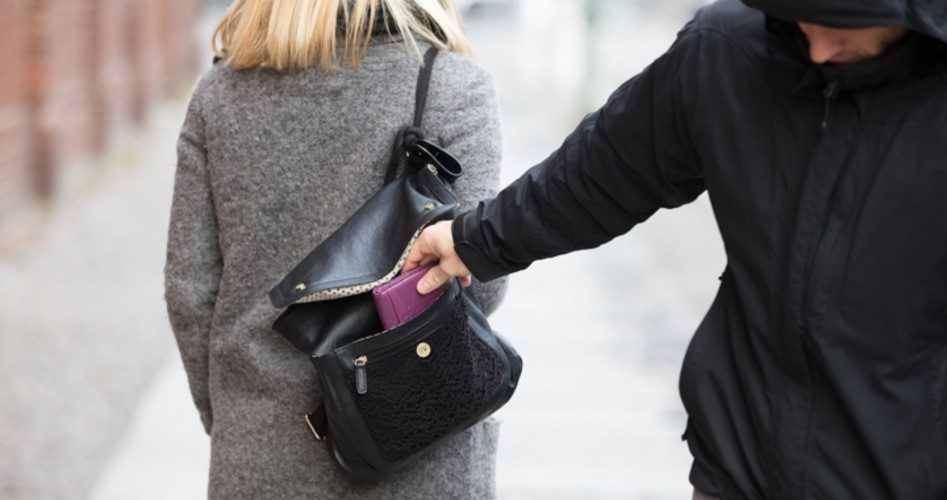
The Minneapolis Police Department (MPD) is advising citizens of the city to “Be prepared to give up your cell phone and purse/wallet,” in the event that they are accosted by a criminal. The advice comes as the city is experiencing a 37-percent increase in robberies over last year in the wake of the death of Minneapolis criminal George Floyd, who died in police custody in May.
The department’s “robbery prevention tips” were circulated by KSTP-5, an ABC affiliate located in St. Paul. Among other bits of wisdom, the department advised citizens: “Despite all our efforts, robberies may still occur! Do not argue or fight with the criminal. Do as they say. Your safety is most important!”
In the third precinct — where the Floyd incident occurred — police have responded to 100 robberies and 20 carjackings in July alone. Police report that cellphones, purses, and vehicles are being stolen and also relayed that victims have been assaulted, maced, dragged, and threatened with guns in those incidents.
The Hennepin County Police and Fire monitoring account on Twitter mocked the advice and Minneapolis Mayor Jacob Frey, tweeting: “Look, another email on how to be a perfect victim in #MpsCrime just came out, but wait @MayorFrey says Minneapolis is a safe vibrant place.”
Perhaps the MPD is just giving the public a taste of what life will be like without them after the Democrat-dominated City Council voted in June to disband the city’s police department and replace it with a yet-to-be-defined “community-led public safety system.”
The defund and abolish the police movement has been strongly pushed by the neo-marxist Black Lives Matter organization. But actual black leaders in Minneapolis have called the plan to abolish the city’s police force “egregious, grotesque, absurd, crazy, ridiculous,” according the Minneapolis Star Tribune.
Some black leaders in the community have lashed out at the City Council’s decision. Civil-rights attorney Nekima Levy Armstrong, a former president of the NAACP’s Minneapolis chapter, complained that the council didn’t take the wishes of the city’s black community into consideration when they voted to do away with the police.
“They have shown a complete disregard for the voices and perspectives of many members of the African-American community,” Armstrong said. “We have not been consulted as the city makes its decisions, even though our community is the one most heavily impacted by both police violence and community violence.”
Though Minneapolis Mayor Jacob Frey has gone on record saying that he does not support a total disbanding of the city’s police department, he has taken responsibility for the decision to evacuate the Third Precinct station, which allowed rioters to torch the building on May 28. That incident — maybe more than any other — signaled the city’s helplessness in dealing with rioters. The burned-out Third Precinct headquarters is symbolic of the city’s capitulation to criminals. Frey is culpable for that.
One Third Precinct crime victim who chose not to heed the police department’s advice to simply acquiesce to the criminals in the city was 99-year-old Evelyn Johnson, who fought back after an attacker entered her home through a back window and covered her head with a blanket.
“I think he was surprised,” Johnson said. “He thought he was just going to cover my mouth and smother me, but that didn’t happen. I fought him. We wrestled for quite awhile according to my bruises.”
The attacker eventually wrestled Johnson into a bathroom and shut the door. The criminal escaped with approximately $40 and an iPad.
“I’m am surprised to think that I’m 99 years old and was able to work off that strong young man,” said Johnson, whose hearing aid was broken in the fight. “God was with me.”
But according to the MPD, Johnson was wrong to fight. She should have just meekly surrendered and hoped that the criminal who attacked her would choose to allow her to live after the robbery.
The advice given by the MPD is actually not uncommon. Many police departments and victim-advocacy groups give basically the same advice to someone being mugged or robbed — some version of “your wallet is not worth your life, so it’s better to just give in.” But it’s a message that emboldens criminals, who are far more likely to attack when they don’t fear that victims might defend themselves.
Aren’t such situations part of what the Second Amendment is all about?
If history has taught us anything it’s that weakness — or the perception of weakness — invites aggression. Minneapolis has signaled its capitulation to rioters and criminals over and over again. Is it any surprise that criminals are now taking advantage of that?
Image: AndreyPopov/iStock/Getty Images Plus
James Murphy is a freelance journalist who writes on a variety of subjects. He can be reached at [email protected].




